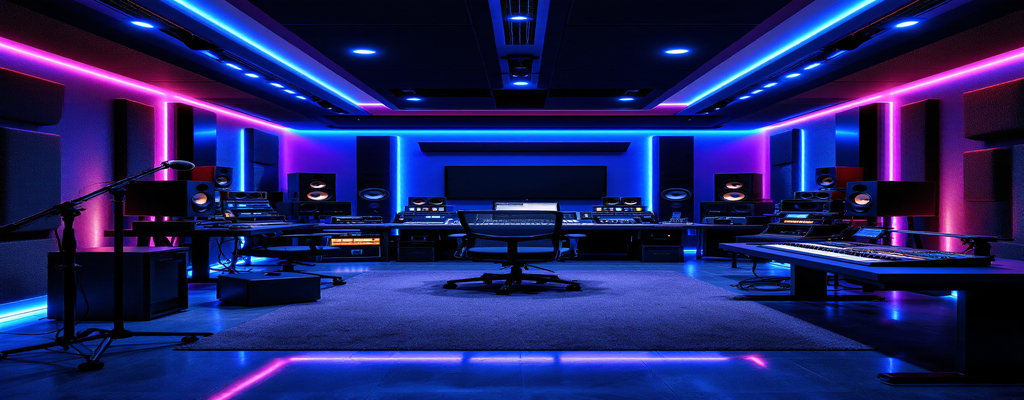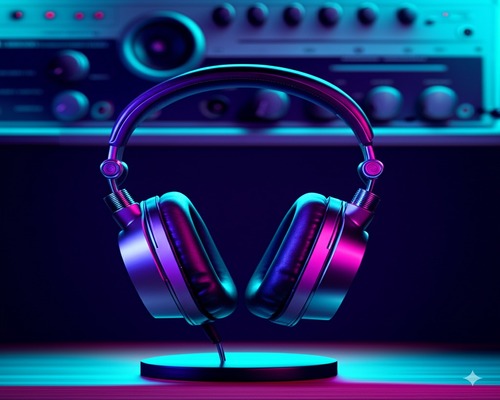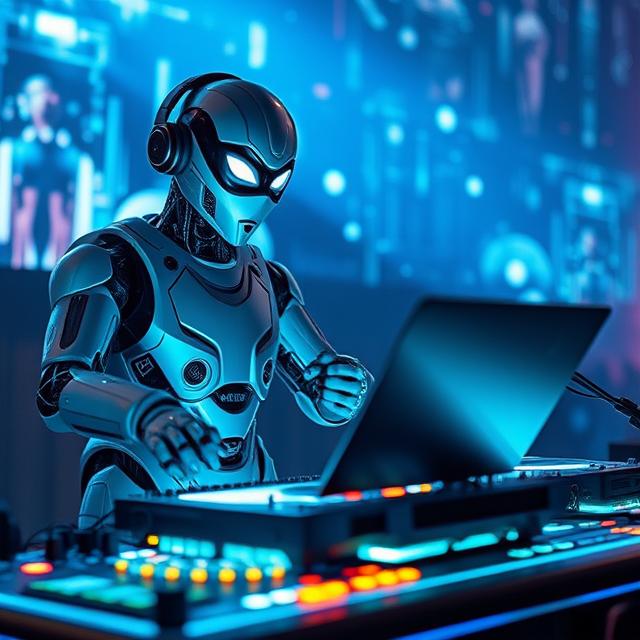
AI music news and trends 2025 show how the music world is changing with new tools that are reshaping how songs are made, shared, and enjoyed. Now, thanks to these tools, making music is something anyone can do – you don’t need years of training or expensive gear anymore.
How AI is Changing Music in 2025
The music world looks very different in 2025, with AI tools making music creation simpler than ever. According to Alan Cross, these AI tools are now so easy to use that almost anyone can make music with them. This is a big change in how music gets made, with AI helping people as both a creative partner and a production helper.
If you’re just starting out and want to try creating remixes and mashups with AI, these tools make it easy to jump in without needing to know music theory. Even professional musicians are finding that these tools help them work faster and come up with fresh ideas.
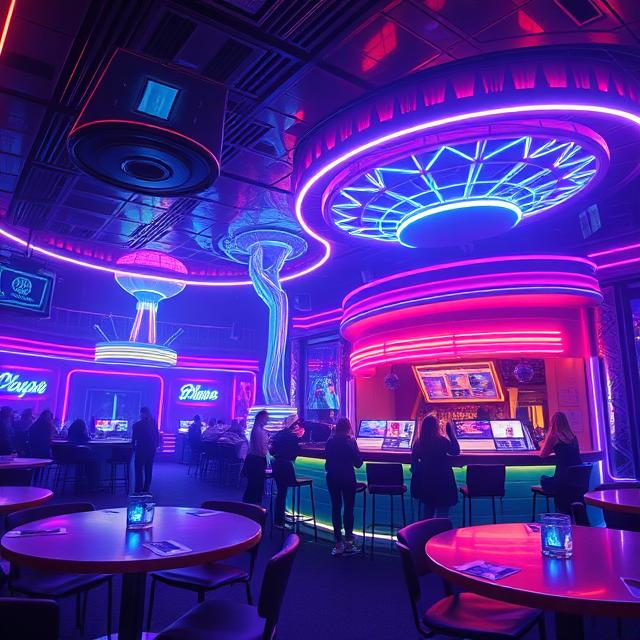
New AI Music Tools in 2025
Stable Audio 2.0: Making Full Songs from Text or Sound Samples
One of the coolest new tools in 2025 is Stable Audio 2.0. According to Music Business Worldwide, it can make complete songs up to three minutes long that sound professionally made. You just type what kind of song you want, and the AI creates it for you.
What’s really neat about this tool is that you can upload your own sound samples, and the AI will use them to shape the music it makes. This gives you more control over how the final song sounds while still getting the AI’s help.
Top AI Song Generators of 2025
Several AI music generators are really popular in 2025. Suno AI gives you 50 free tries each day, and costs just $8/month if you want more. If you don’t want to spend money, SongR is completely free to use.
Other good music AI tools include Soundraw.io (free plan with paid options at $16.99/month) and Splash Pro (free plan with better features at $8/month). Each one is good at different things – some make full songs while others are better at making background music.
Want to learn more about AI music production in 2025? These tools are just the start of what’s possible.
Soundverse AI: The All-in-One Music Creation Platform
Soundverse AI does a little bit of everything for musicians. According to Soundverse, this tool lets you type what kind of song you want, and it makes it for you (text-to-music generation). It can also separate vocals from music, write lyrics, and make short music clips longer.
What makes Soundverse special is its AI helper called SAAR, which makes it easy to try out musical ideas. This is great when you’re working with friends or need to quickly test different sounds for a project.
Emerging AI Music Tools: Features and Capabilities
There are more specialized tools coming out all the time. Some focus on making vocal parts with AI voices made for songs. Others like Cryo-Mix help with mixing and mastering to make your songs sound radio-ready. There’s even Playlist Genius that uses AI to find new music and make playlists for you. These tools show how AI music technology is getting more specialized.
Curious about AI music by genre? Each of these tools can help with different music styles.
Trends in AI Music Generation Technology
High-Fidelity Audio: The New Standard in AI Music
AI music trends in 2025 show big improvements in sound quality. The newest tools like Stable Audio 2.0 now make music at 44.1 kHz stereo – the same quality used in professional studios. This means AI-made music sounds almost the same as music recorded by professionals, making it good enough for commercial use.
Want to know more about how these tools are changing the industry? Check out our guide on the impact of AI in music.
Audio-to-Audio Generation: Transforming Sound Samples with AI
One of the coolest AI music news stories of 2025 is audio-to-audio generation. This lets you upload your own sounds, and the AI changes them based on what you ask for. It’s like a mix between old-school sampling and new AI technology, giving musicians more control over how their AI-made music sounds.
For beat makers, this opens up new possibilities. Learn about AI beat makers for hip-hop to see how producers are using these tools.
Stem Separation and Audio Manipulation Technologies
Tools like LALAL.AI have made big steps forward in how they split songs into parts. Now you can take any song and break it into vocals, drums, bass, and other instrument parts in just seconds. This has changed how people approach AI stem separation for remixing and sampling.
This tech gives musicians much more freedom to remix existing music, sample specific parts, or play around with songs in ways that weren’t possible before. It’s changing how artists create and arrange music.
Traditional Song Structures in AI Composition
Early AI song creation tools could only make short clips or loops. Now, AI systems like Stable Audio 2.0 can create full songs with proper beginnings, middles, and endings. This makes AI-made music more useful in the real world and more enjoyable for people who are used to regular song formats.
Hip-hop artists have been quick to use these tools. See how on our page about AI in hip-hop and rap.
AI Music and the Music Industry
Copyright Challenges: AI as the “Copyright Thief” of 2025
The music industry is facing big problems with copyright as AI music algorithms create songs that sound just like human-made music. According to Forbes, these AI models are trained on huge collections of existing music, which could break the copyrights of millions of artists.
Current copyright laws aren’t ready to handle situations where machines make songs using tiny pieces of thousands of existing works. Learning about ethical AI music production is becoming really important for anyone working in this area.
Global AI Music Copyright Reform: UK’s Leading Role
The UK is taking the lead in fixing AI copyright problems. Lawmakers there are debating whether AI should be allowed to learn from creative works without getting permission. This has worried many artist groups who think this could set a bad example for other countries.
If you want to create music with AI while respecting copyright, our AI music prompts guide gives tips on making original content.
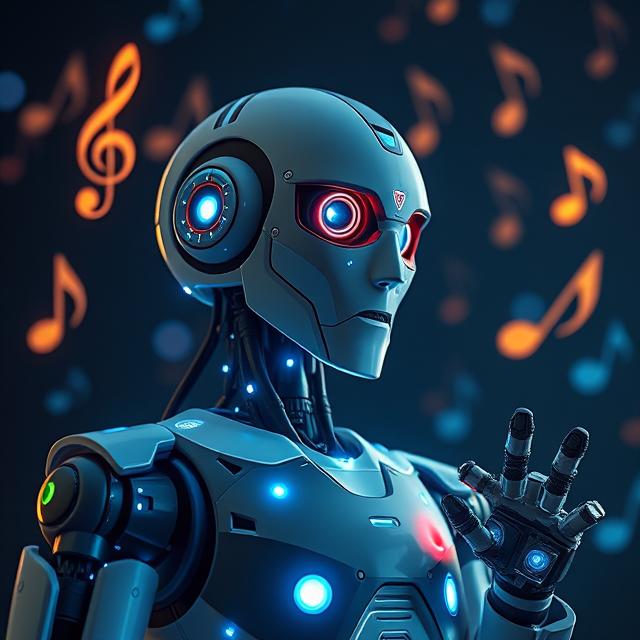
Economic Impact on Professional Musicians and Composers
Services like Spotify are adding more AI-made music, which could mean less money for human artists. This raises important questions about fair pay and what role professional musicians will have in a future where AI can make endless amounts of music.
For musicians looking to adapt to these changes, checking out AI tools for musicians can help you stay ahead.
Democratization of Music Production Through AI
Despite the challenges, the AI music news and trends of 2025 show that these tools are making music production accessible to everyone. This opens up creative possibilities that weren’t possible before, letting people without music training express themselves through music.
The big question is whether this will ultimately make the music world better or worse. For those wanting to learn how to use these tools responsibly, our AI music learning resources provide helpful guidance.
AI Music Ethics Barometer: Rating Platform Approaches
Methodology: How We Evaluate Ethical AI Music Platforms
We’ve created a system to check how ethical different AI music platforms are. We look at things like whether they’re open about their training data, how they pay artists, and what rights users have to the music they create with AI. This helps you choose platforms that match your values.
Transparency Ratings: Platforms That Disclose Training Data Sources
While many AI music tools don’t tell you where they got their training data, some are more open about it. We identify which companies clearly say how their AI was trained and whether they got proper licenses. This matters for artists worried about their work being used without permission or payment.
Artist Compensation Models: The Fair Play Index
Different AI music generators handle artist payment in very different ways. Our Fair Play Index looks at how fairly platforms share money when AI-made music uses parts of existing songs. This helps creators know which platforms prioritize fair payment for original artists.
User Rights: Who Owns Your AI-Generated Music?
Ownership rights for AI-created content vary a lot between platforms. We explain the often confusing terms of service about who owns music created with AI tools and what commercial rights you have to your AI-made content. This information is essential if you’re thinking about using AI music professionally.
Interested in creating pop music with AI? Check out our guide on pop songs with AI music generators.
AI Music in Different Applications
Gaming Soundtracks: Adaptive AI Music for Immersive Gameplay
AI-made music works really well in video games, where it creates soundtracks that change based on what the player is doing. According to Wardrome, this makes games more emotional and gives players feedback that regular soundtracks can’t provide.
Tools like Soundraw let game makers quickly create game music by picking things like length, speed, and mood to fit different parts of the game. Learn more about AI in ambient and experimental music to see how these techniques are being used.
Case Study: Activision Blizzard’s AI Music Integration
Activision Blizzard has been exploring artificial intelligence in music production to make games better. They’re creating music that changes in real-time based on what players do, making each person’s experience more personal.
This example shows how big game companies are putting machine learning music composition to work in games that millions of people play.
Film Scoring: How AI is Changing Soundtrack Composition
AI music generators are changing how film music is made by letting composers quickly create music for specific scenes. This lets filmmakers try different musical moods more easily than traditional methods.
The result is better emotional scoring that can be changed quickly during editing. For filmmakers interested in this, our guide on creating metal music with AI shows how even complex music can be made for dramatic scenes.
Advertising: Personalized AI Jingles and Brand Soundscapes
The advertising industry loves AI music generation for creating custom jingles and brand music. These tools let marketers make music that matches the feeling of their ads without spending a lot on hiring composers.
This shows how AI music, news, and trends in 2025 are creating value in business settings beyond just entertainment.
Many ad agencies are using AI mixing tools to perfect these compositions.
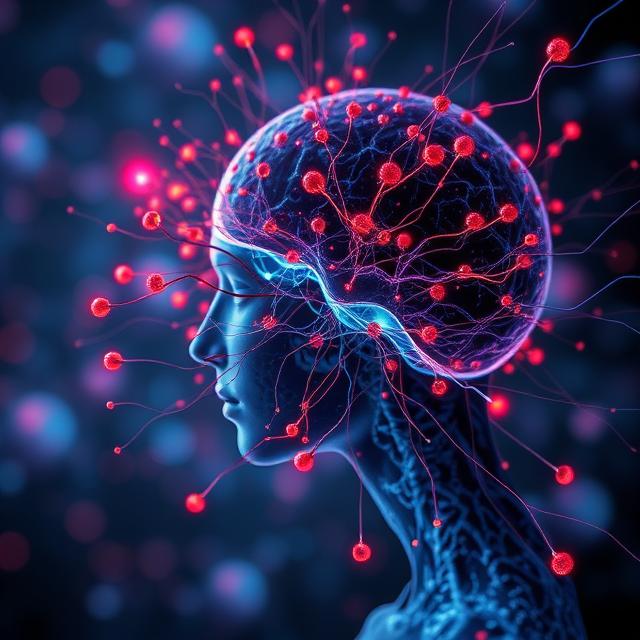
Interactive Timeline: The Evolution of AI Music Technology
2010-2015: Early Algorithmic Composition Tools
The first AI music tools from 2010-2015 used simple rules but weren’t very musical. They set the stage for what was to come but couldn’t make music that sounded natural.
2016-2020: The Rise of Neural Networks in Music
From 2016-2020, neural networks changed everything, with models from OpenAI and Google showing that AI could understand music at a deeper level. This was the first time AI could really understand musical style.
2021-2023: Mainstream Adoption of AI Music Tools
Between 2021-2023, these tools started reaching regular people with easy-to-use interfaces and better sound quality. This was when AI music tools became practical for everyday musicians.
2024-2025: Current State and Breakthrough Innovations
And now, in 2024-2025, we’re seeing big breakthroughs like full-length song generation and studio-quality audio. These advances have made AI music technology a legitimate tool for production rather than just a novelty.
For those interested in using AI for classical music, check out AI in classical and orchestral music to see how these tools are being applied to traditional forms.
2026 and Beyond: Projected Developments
Based on current AI music trends, we expect that by 2026 and beyond, we’ll see even better integration between human creativity and AI help. Future AI will better understand what musicians are trying to achieve and work as true creative partners.
Expert Opinions and Interviews on AI Music
Industry Leaders: The Future of AI in Music Production
Leading experts in music technology offer valuable insights on where AI music is headed. Their thoughts highlight both the transformative potential of these tools and the importance of keeping human creativity at the center of music creation.
Artists Speak: How Musicians Are Integrating AI Tools
Professional musicians are finding creative ways to use AI in their work. From using AI for inspiration to using it for production help, artists are developing thoughtful approaches that enhance rather than replace human creativity.
Research Frontiers: Academic Perspectives on AI Music
Academic researchers are pushing the boundaries of what’s possible in AI music, news, and trends for 2025. Their work explores not only technical improvements but also questions about how we understand music, creativity, and the relationship between humans and machines in art.
The Ethics Panel: Balancing Innovation and Creator Rights
Ethical considerations remain central to discussions about AI music. Experts in digital ethics, copyright law, and music industry economics offer crucial perspectives on balancing technological innovation with fair payment and respect for creative rights.
Interested in electronic music? Check out our guide on AI music prompts for electronic dance music.
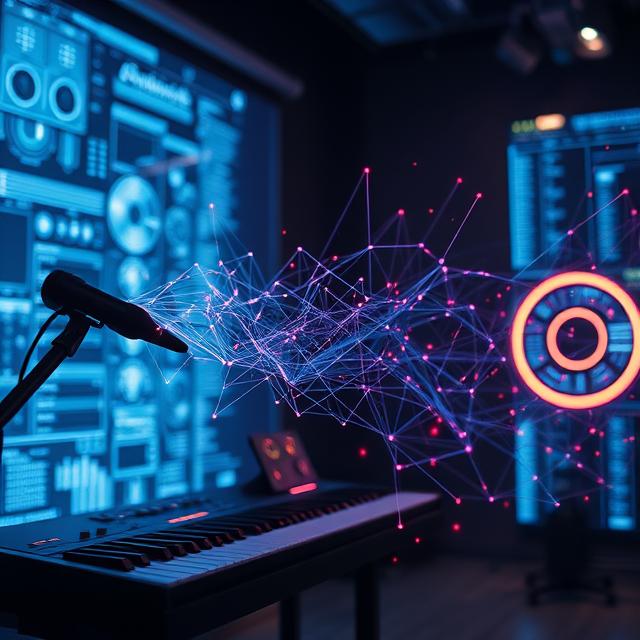
Navigating the Future of AI in Music
Think about how music creation is changing right now. The AI music news and trends 2025 we’ve seen show both amazing possibilities and real concerns. These tools make music creation available to almost anyone, but they also raise questions about who owns what and how artists get paid.
The best AI music generators 2025 aren’t trying to replace musicians – they’re helping them. The most successful approaches enhance what humans already do instead of competing with them. Finding that sweet spot between embracing new tech while respecting artists’ work is the challenge we’re all facing.
Maybe you’re already making music professionally, designing games that need soundtracks, or just someone who wants to create without years of practice. Whatever your situation, learning how to create music with AI tools can unlock creative options you never thought possible.
Worried about AI music copyright issues in 2025? That’s smart. Staying informed and choosing platforms that care about ethics will help you navigate this constantly changing landscape.
Want to learn more? Explore our guides on AI music creation tools and discover the future of music creation today.
Frequently Asked Questions About AI Music in 2025
- What are the best AI music generators available in 2025? Suno AI, SongR, Soundraw.io, and Splash Pro are top choices, each with different strengths and prices.
- How is AI music affecting copyright law around the world? Countries like the UK are changing copyright laws to deal with AI training on creative works, with ongoing debates about licensing.
- Can AI-generated music be used commercially without legal issues? It depends on the platform’s rules and how the AI was trained. Always check who owns the rights before using AI music commercially.
- How are gaming companies implementing adaptive AI music systems? Companies like Activision Blizzard are making soundtracks that change based on what players do in real-time, making games more immersive.
- Will AI replace human musicians and composers? While AI is getting better, most experts think it will be a tool that helps human creativity rather than replacing musicians completely.
- What ethical considerations should be noted when using AI music tools? Think about being open about training data, fair pay for artists, and understanding who owns the AI-created content.
- How do stem separation technologies work in modern AI music platforms? These technologies use machine learning music composition to find and separate different instrument and vocal parts of a song, letting you remix and sample.
- Which AI music tools offer free versions for beginners? SongR is completely free, while Suno AI, Soundraw.io, and Splash Pro all have free options with some limitations.
